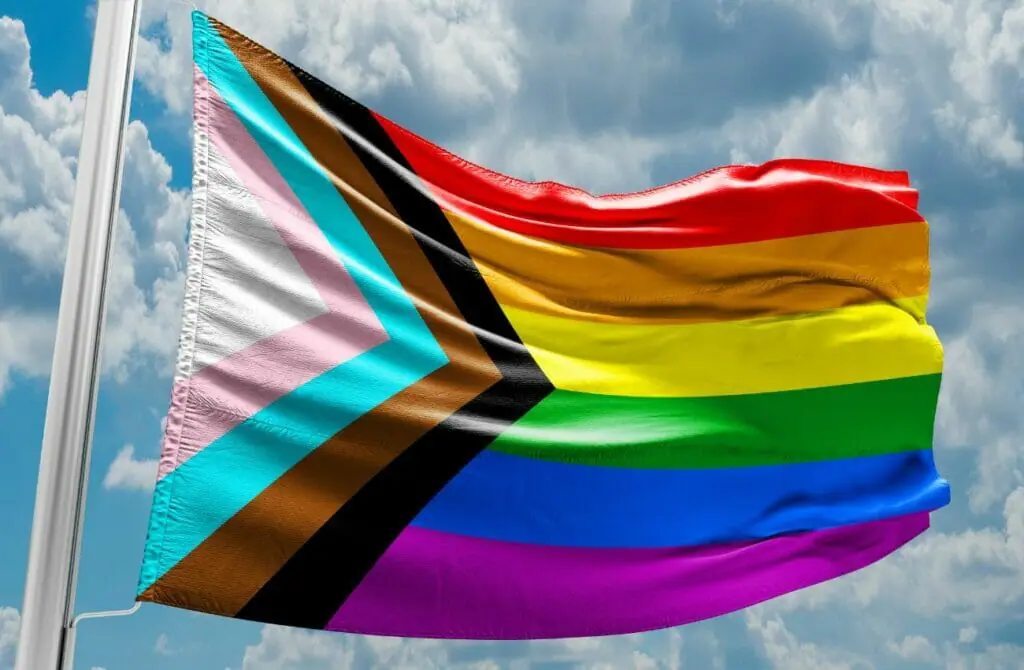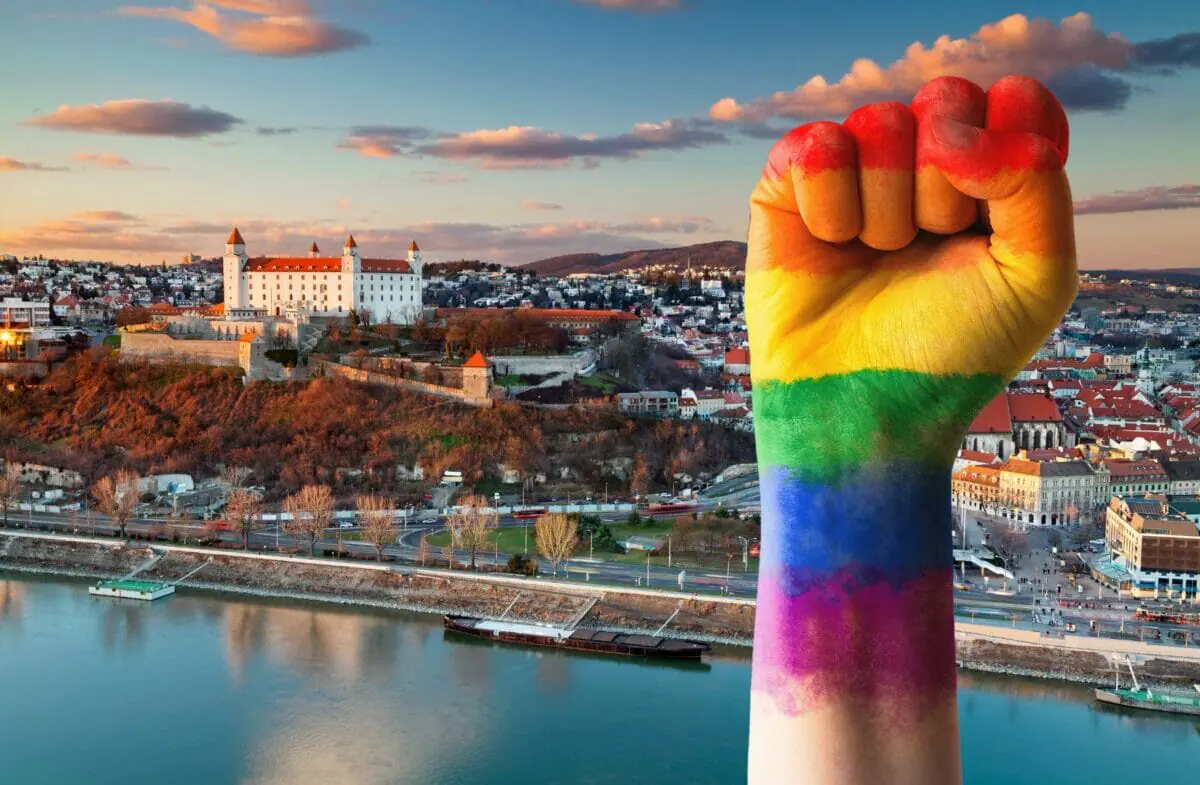LGBT rights in Slovakia have been a topic of ongoing discussion and debate as the nation grapples with legal and social challenges faced by its LGBT residents.
Although same-sex sexual activity was made legal in Czechoslovakia in 1962, same-sex couples in Slovakia still experience limited legal rights compared to their heterosexual counterparts, and prevailing attitudes may reflect resistance towards LGBTQ+ individuals and their rights.
For tourists visiting Slovakia, it is essential to be aware that the experience of the local LGBTQ+ community may differ from what is commonplace in other countries. While the rights situation for local people might not be as progressive as travelers may be accustomed to, exercising personal caution and remaining vigilant can help ensure a safe and enjoyable visit.
It is also important to bear in mind that the political, legal, and social landscape can change rapidly, so seeking up-to-date information prior to any travel is advisable.
In order to protect oneself while visiting Slovakia, one should be cautious and aware of one’s surroundings. Stay informed on the latest developments related to LGBTQ+ rights and perception in the country, avoid engaging in confrontations, and connect with local LGBTQ+ groups or organizations for support if needed. Keep in mind that, as in every country, there are always individuals with negative intentions, so it is crucial to remain alert and cautious during your stay.

History Of LGBT Rights In Slovakia
Same-sex sexual activity was legalized in Slovakia in 1962, when it was part of Czechoslovakia, due to scientific research from Kurt Freund, which led to changes in public opinion. However, the rights of LGBTQ+ individuals have been facing challenges over the years, particularly with regard to legal protections for same-sex couples. The constitution of Slovakia has banned same-sex marriage since 2014.
While both male and female same-sex sexual activity is legal in Slovakia, households headed by same-sex couples are not eligible for the same legal protections available to opposite-sex couples. Slovakia does grant limited legal rights to same-sex couples, specifically in the area of inheritance and assets. However, public opinion in Slovakia has shown a prevalence of resistance towards LGBTQ+ rights.
For tourists, the situation may appear more tolerant in larger cities, such as Gay Bratislava, where there are LGBTQ+-friendly clubs and events. However, it is important for LGBTQ+ tourists to remain cautious and vigilant, regardless of the region they visit. External factors, such as political climates, can impact the local LGBTQ+ community and may differ in other parts of the country.
As a reader concerned about your safety when visiting Slovakia, it is crucial to remain aware of the legal and social climate surrounding LGBTQ+ rights. Make sure to research the current situation and follow local news for any updates or changes. In general, be discreet about your sexual orientation or gender identity and avoid public displays of affection that may draw attention. It is always better to err on the side of caution and prioritize your safety while traveling.
Please note that the information provided here may become outdated, and it is essential to seek current advice before your journey. Situations can change rapidly in any country, so remain vigilant and stay informed to protect yourself and respect local customs and laws.
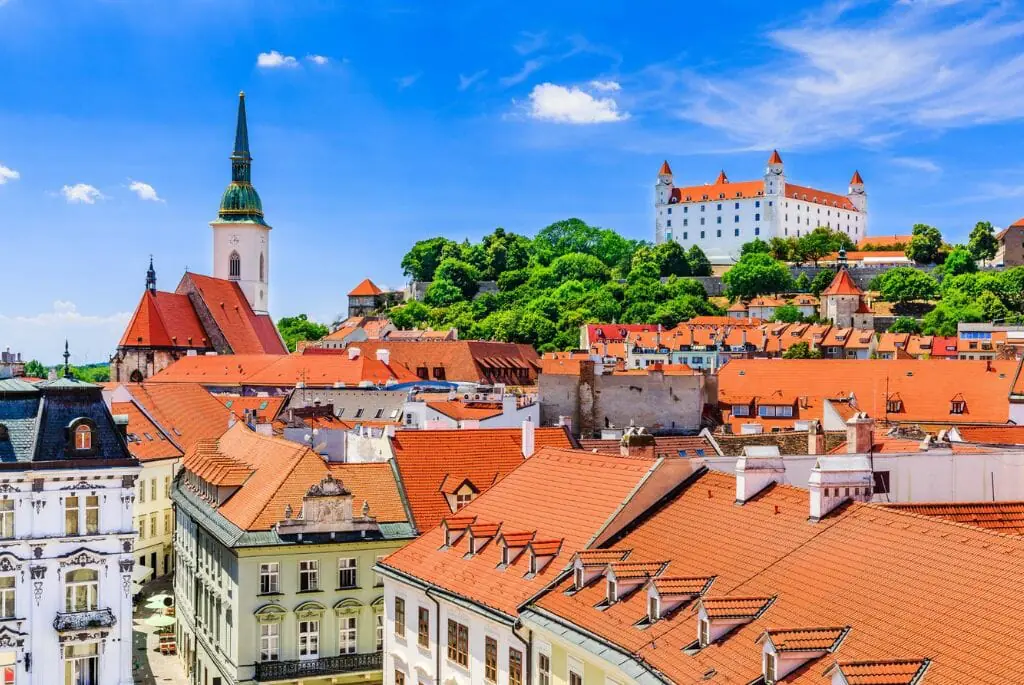

The LGBT Current Situation In Slovakia
LGBT rights in Slovakia remain a concerning issue, both for the local community and for tourists. Civil unions have no legal recognition in the country, with multiple attempts to establish them since 1997 consistently rejected by the Slovak parliament. Furthermore, same-sex marriage has been constitutionally banned since 2014.
The impact of the limited recognition of the LGBT community can be felt differently between locals and tourists. For local LGBTQ+ individuals, the lack of legal protections not only has an emotional component but also affects daily life. In contrast, tourists visiting Slovakia may feel a lesser direct impact of the legal landscape but ought to still remain cautious and informed.
To protect themselves, travelers should rely on credible local resources, such as the Slovak National Centre for Human Rights, queer NGOs, and global organizations. These organizations and initiatives can provide updated information on the situation and offer support and advice for any joining events or visiting LGBTQ+-friendly venues.
It’s essential to remember that situations can change rapidly, and information can become outdated. Always seek current advice before traveling and remain vigilant, as there could be individuals with harmful intentions in any country.
In summary, LGBT rights in Slovakia are restricted and potentially harmful to both locals and tourists. To minimize risk, tourists are advised to interact with reputable organizations, stay informed about current events and issues, and practice caution during their visit.
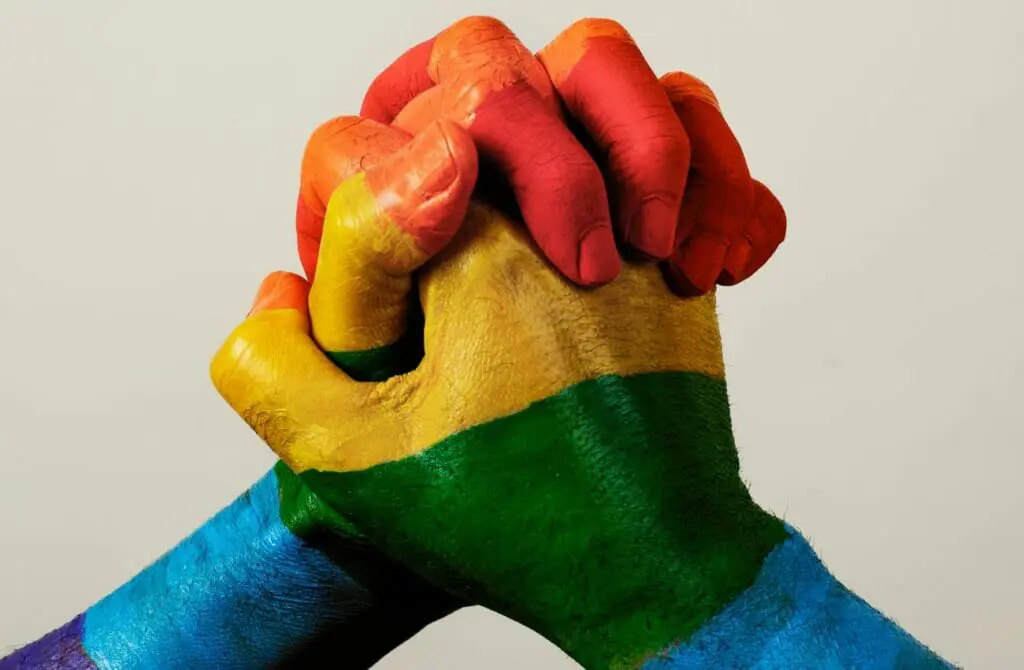

The Future For The Queer Community In Slovakia
In recent years, Slovakia has seen some progress in recognizing the rights of the LGBTQ+ community, yet there is still a considerable way to go. While discrimination on the basis of sexual orientation is against the law, same-sex marriage has remained constitutionally banned since 2014, and adoption by same-sex couples is not yet legal.
For local LGBTQ+ individuals, this situation continues to present challenges in terms of social acceptance and legal rights. Tourists visiting Slovakia may experience less direct discrimination, but it is still vital to remain vigilant and aware of potential risks. When moving around the country, it may be more prudent for LGBTQ+ travelers to avoid excessive displays of affection and always maintain a respectful and discreet attitude.
While the current state of LGBTQ+ rights in Slovakia may not be ideal, there is hope for future improvements. International pressure has been mounting for the country to address issues such as legal recognition of same-sex partnerships and protection against discrimination. However, it is essential to remember that situations can change fast, and information can quickly become outdated. Always seek current advice before traveling or making any personal decisions related to your safety and well-being.
Despite Slovakia’s shortcomings in fully recognizing LGBTQ+ rights, visitors and residents should not be deterred from living their lives. Exercising vigilance and staying informed about the most recent developments will help ensure your safety and protect your rights as the country progresses toward a more inclusive future. Remember that there are always bad actors in every country, so maintaining an alert and cautious demeanor is prudent, regardless of your destination.
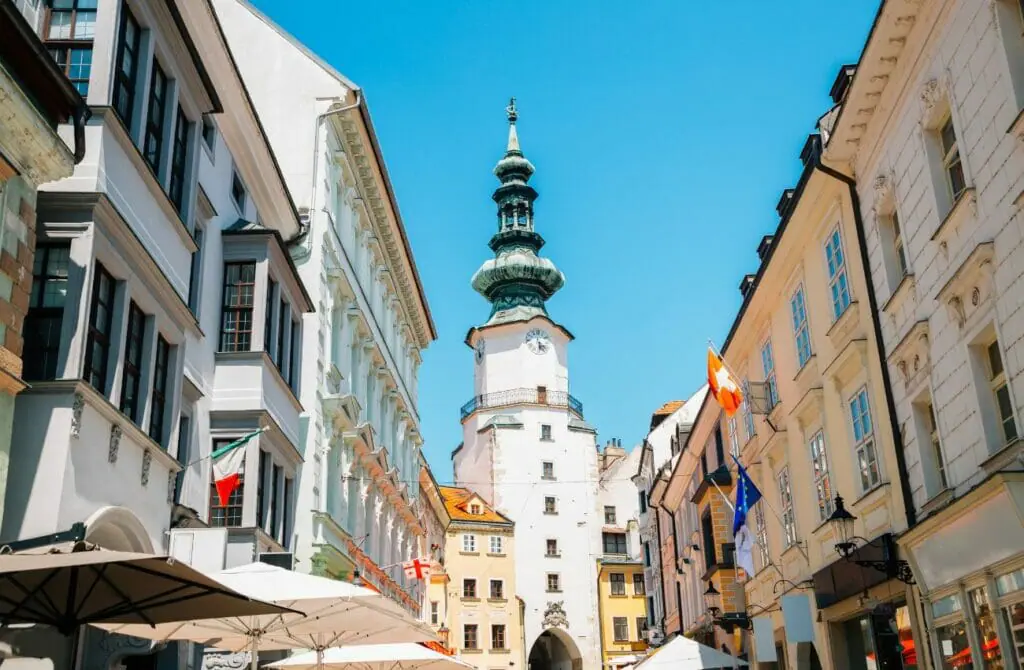
Protect Yourself While Travelling In Gay Slovakia
While exploring Slovakia, it is essential for both local LGBTQ+ individuals and tourists to take specific measures to ensure their safety. Although Slovakia has comprehensive anti-discrimination laws covering sexual orientation and gender identity in areas such as employment, goods and services, education, and health services, sentiments towards LGBTQ+ individuals may vary.
If you’re an LGBTQ+ tourist or local, it’s crucial to remain vigilant while traveling within Slovakia. Always remember that the overall situation in a country may change suddenly, and some individuals may be less welcoming. Therefore, it’s advised to stay updated with the current advice and real-time developments in the region before making travel plans.
To protect yourself:
- Understand the local laws: Slovakia’s legislation currently bans same-sex marriage since 2014, and specific LGBTQ+ rights may vary in different contexts. Familiarize yourself with the applicable laws to ensure your safety and legality.
- Exercise discretion: While public attitudes may differ, it is generally advisable to maintain a low profile and avoid public displays of affection, especially when in less progressive areas or in the presence of unfamiliar companies.
- Network with LGBTQ+ communities: Joining local LGBTQ+ groups or reaching out to trusted organizations can provide valuable information, tips, and support from like-minded individuals who understand the local landscape.
- Stay informed: Subscribe to local news or follow the social media accounts of LGBTQ+ organizations for updates on events, changes in legislation, or potential threats to the community.
- Utilize safe spaces: Consider using LGBTQ+-friendly accommodation options, visiting establishments with positive reputations, and attending LGBTQ+-focused events to connect with others and enjoy your time securely.
As a final precaution, be prepared for potentially unexpected situations. While the majority of locals may be accepting or indifferent, there could be some bad actors in every country. Being aware of your surroundings, maintaining a healthy skepticism, and staying informed about potential risks are all vital steps for a safe and enjoyable experience.
